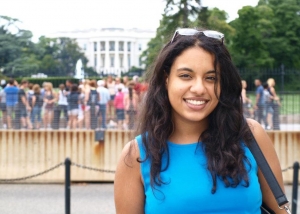The name Brazil conjures many images; the exotic wildlife of the Amazon, the crammed, multi-coloured matchboxes houses clinging onto hills in the favelas, and the sparkle of its famous costumed Carnival. Brazil is a country with a reputation almost as big as its size. Yet until the early 2000s, Brazil was largely dismissed as a world player. Plagued by political and economic struggles, the country has only recently begun to come into its own. Now, Brazil has been given the opportunity to exhibit its recent coming of age through hosting two of the world’s biggest (and most demanding) sporting events: the FIFA World Cup in 2014 and the Summer Olympic Games in 2016.
Only ten countries have had the honour of hosting both the World Cup and the Summer Olympics; Brazil will be the eleventh. Like the last host of the World Cup in 2010, South Africa, Brazil has something to prove through its performance as a host. As South Africa made clear its progress after its late abolishment of apartheid, Brazil is eager to prove to the world that it has the potential to be a world leader.
Brazil is Rising – A New Economic Powerhouse
For Brazilian millennials, the twin challenge of hosting the two games presents welcomed opportunities. Earlier generations had been marked by their struggles, namely the Vargas dictatorship followed by an extended period of hyperinflation. In contrast, the millennials are benefiting from Brazil’s recent economic growth, the interconnectivity of the digital age, and the increased opportunities that have developed from globalization. Consequently, they are the first that are collectively eager and willing to take their place on the world stage.
Brazil now has an incredible opportunity for its burgeoning workforce, its tourism and its reputation. The World Cup and the Olympics attract hundreds of thousands of international tourists, an untapped market for the country. Despite its many attractions, vibrant culture, and numerous natural resources, Brazil has struggled to bring in international tourists. Most of its tourism is from Brazilians themselves travelling within the country. Now, with a reason to showcase its many attractions, hotels are springing up throughout the main cities, with travel agencies and transport bulking up to prepare for the oncoming onslaught. Estimates for the number of jobs to be created run up to 700,000, not to mention the benefits inherent in improved infrastructure and a massive injection of foreign currency.
In 2001, Brazil was also named as an emerging economy, the first acronym of BRIC (standing for the four largest developing economies in the world – Brazil, Russia, India and China). It performed relatively well in the financial crisis, managing to avoid the disastrous fallout of other countries that had closer ties to the USA. In 2011, past president Lula da Silva had managed to garner some political clout. Under his leadership, Brazil successfully pushed for the change from the G7 to G20 and an increased role of developing countries in the IMF. It resisted international pressure and continued to support sanctions against Iran for its pursuit of development of nuclear weapons.
Growing Pains – World Cup and Olympic Setbacks
Despite its immense potential, Brazil has been suffering major setbacks in its preparations. Chief among its concerns is the rampant corruption that mars the political scene, a costly embarrassment under increased international scrutiny. It has registered sluggish growth recently, surprising economists and casting doubts on its economic power. Even in the smaller details of hosting the games themselves, there have been blights on its track record. In terms of construction, FIFA stipulated that all 6 of the stadiums needed for the games were to be completed by December 2012. As of April 2013, they were still under construction. Brazilian journalist Mario Chimanovitch has written about the country’s ineffective anti-terrorist policies, which will be a huge concern at both events. Smaller tragedies have also been gaining some negative attention in the media. A deadly and horrendous nightclub fire which resulted in 241 deaths (which was pegged to lax enforcement of safety codes) and a recent violent assault against an American tourist has done the city’s image no favours.
Perhaps its biggest challenge is the discord among its own citizens. Among such discord, there have been controversies over construction through its historic favelas, which have led to the displacement of the families who have lived there for decades and the loss of their communities. A highly educated generation is growing frustrated with the quality of opportunities available to them, and many from the lower socio-economic backgrounds are becoming increasingly angry at the country’s unwillingness to tackle its poverty problem. While it is important for Brazil to woo foreigners, it is even more important that it fosters a sense of pride and opportunity among its own population. Many are hoping that the pressure of the spotlight will force Brazil to wrestle with its own demons.
As of now, it is 10 months until the next carnival, 14 months until the World Cup, and 3.3 years until the Olympic Games. Brazil has little time to conquer numerous problems. Yet surveys of national preparations, though they outline the numerous setbacks, all comment on the strong political will and the nation’s commitment to excelling at hosting. Residents themselves remain cautiously optimistic about their country’s prospects as a host. If the government manages to deal with the city’s current problems, as well as the complications brought about by the two events, they say, “Maybe the games could be something to celebrate.”




